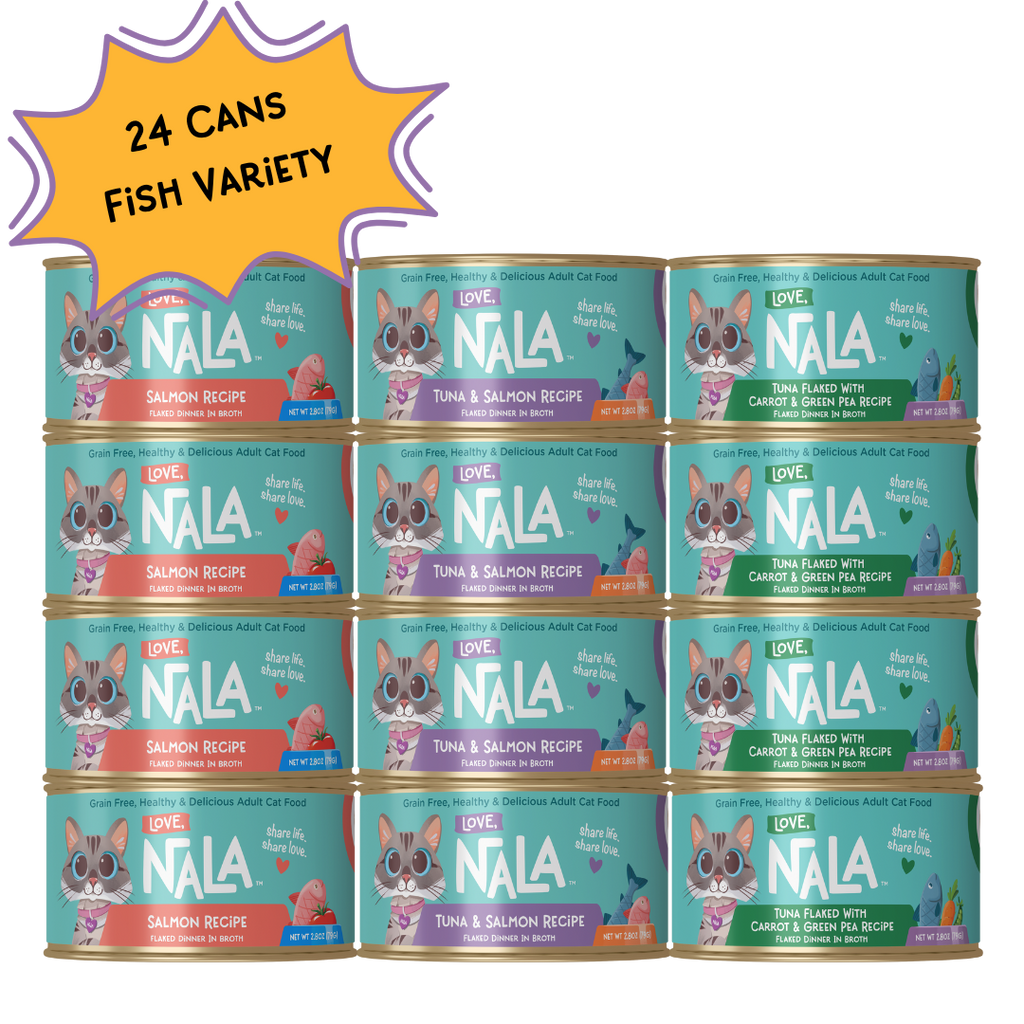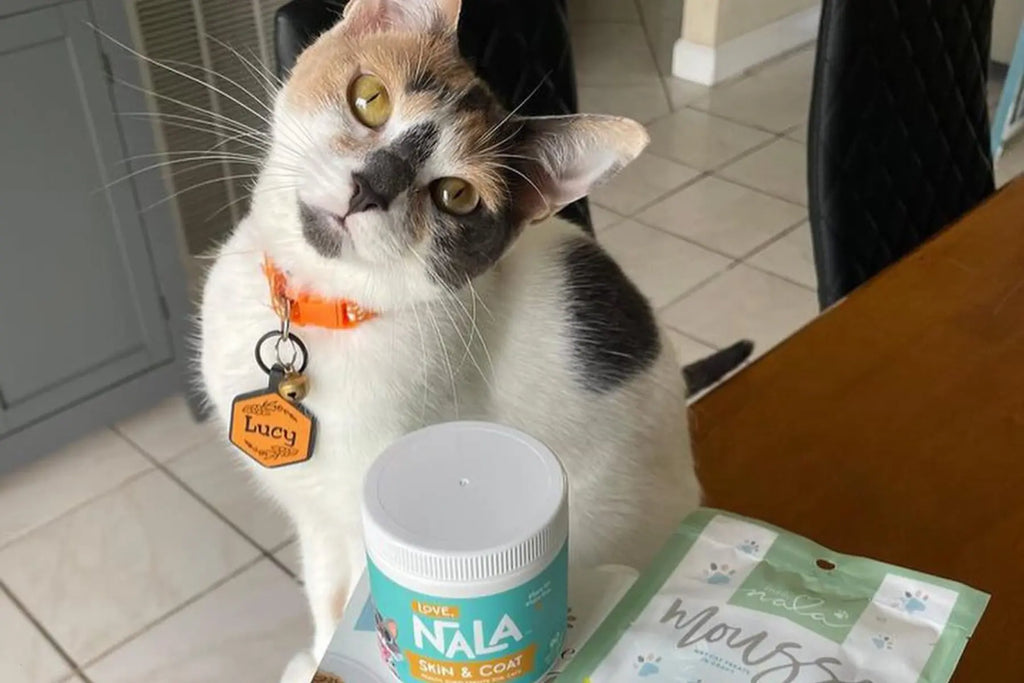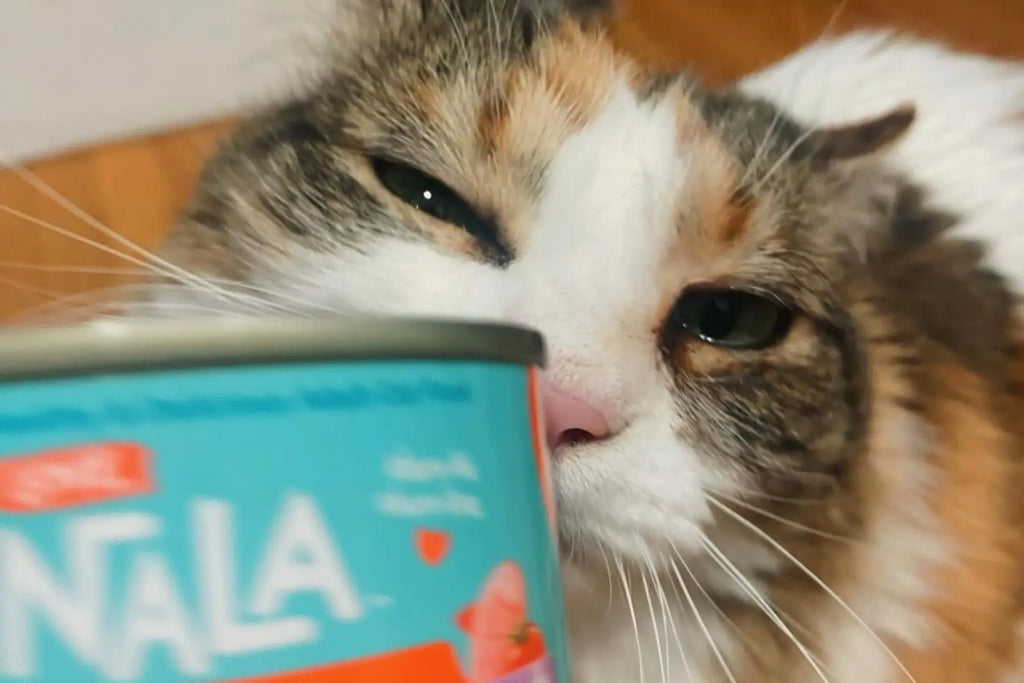Being a cat owner means always seeking the best cat food that aligns with our feline's natural dietary needs. Recently, the notion of grain-free cat food has been making waves in the pet food industry. This blog post aims to guide you through the facts, benefits, and considerations of feeding your cat a grain-free diet, so you can make an informed decision about what’s truly the healthiest cat food for your beloved companion.
The Basics of Feline Dietary Needs
By nature, cats are obligate carnivores. This means that they primarily require proteins and fats – nutrients obtained from animal sources. Their dietary needs center around these essential components, a fact that underlines the significance of choosing cat food enriched with high-quality proteins and fats. Traditionally, many commercial cat foods have used grains as a primary ingredient. However, it’s worth pondering whether such ingredients align with a cat’s natural dietary preferences and what implications they could have on their overall health.
The Concept of Grain-Free Cat Food

Grain-free cat food has gained popularity among cat owners who believe that cats are better suited to a diet without grains. These formulas typically prioritize protein-rich ingredients, ensuring that cats receive the essential amino acids they need to thrive. Additionally, the inclusion of alternative carbohydrates like potatoes and peas can provide energy for feline companions. While grain-free options offer potential benefits for cats with specific dietary sensitivities, it's important to note that not all cats require grain-free diets.
Benefits of Grain-Free Cat Food
Feeding your cat a grain-free diet can offer an array of health benefits. These benefits can be especially noticeable if the main protein sources are high-quality meats like salmon or chicken, as in grain-free salmon cat food or grain-free chicken cat food.
Improved Digestion and Increased Energy Levels
One of the main potential benefits of grain-free cat food is improved digestion. Since cats are naturally carnivorous, their bodies are better equipped to process proteins and fats rather than grains, leading to smoother digestion. As a result, cats on a grain-free diet often display increased energy levels.
Weight Control
The best cat food goes beyond providing basic nutrition and should ideally support optimal weight maintenance. High-quality grain-free cat food is a great choice as it typically incorporates minimal fillers and higher protein content. These factors play a crucial role in weight control for cats, promoting their overall well-being and ensuring they receive the necessary nutrients while avoiding unnecessary additives or excessive carbohydrates.
Better Coat and Skin Health

A diet rich in high-quality proteins and healthy fats, such as those present in natural cat food, plays a vital role in enhancing a cat's skin and coat well-being. By providing essential nutrients, it promotes a lustrous and smoother fur, resulting in an overall healthier appearance.
Allergy Alleviation
Certain feline companions may develop allergies to grains, manifesting as skin irritation or gastrointestinal problems. By opting for grain-free cat food, these allergic reactions can be mitigated. Grains, including wheat, corn, or soy, are common culprits triggering such sensitivities in cats. However, by transitioning to grain-free alternatives, pet owners can provide their furry friends with a balanced and allergy-friendly diet, promoting their overall well-being and minimizing discomfort.
Considerations When Switching to Grain-Free Cat Food
Before making the switch to grain-free cat food, it is essential to consider a gradual transition to avoid any potential upset to your cat's digestive system. Cats can be sensitive to sudden dietary changes, so introducing the new food slowly over a period of one to two weeks is recommended. Start by mixing a small portion of the grain-free food with your cat's current food, gradually increasing the proportion of the new food each day. This approach allows your cat's digestive system to adapt to the new ingredients without causing any discomfort or digestive issues.
Moreover, consulting with a veterinarian before making significant changes to your pet's diet is crucial. They can provide personalized advice based on your cat's specific needs and health conditions. A vet will consider factors such as age, weight, activity level, and any underlying health issues to ensure that the transition to grain-free cat food is suitable and beneficial for your furry friend. Their guidance will help you make an informed decision and ensure your cat's well-being throughout the dietary change.
Selecting High-Quality Grain-Free Cat Food

When it comes to choosing the healthiest cat food, it’s important to know what to look for. A high-quality grain-free cat food should contain premium proteins, healthy fats, and adequate fiber sources.
High-quality Proteins
The protein source should ideally be the first ingredient listed on the cat food label. Examples of high-quality proteins include deboned chicken, salmon, or other clearly identified meats or fish.
Healthy Fats
Omega-3, omega-6 fatty acids, and other healthy fats are essential for a cat's overall health. They support brain development, immune function, and skin and coat health.
Balanced Nutrition
Grain-free doesn’t necessarily mean low-carb. Make sure that the grain-free cat food you choose offers a balanced diet with the right amount of proteins, fats, and carbohydrates.
Things to Avoid in Grain-Free Cat Food
Avoid cat foods that include unidentified meat meals, by-products, artificial colors, flavors, or preservatives. Remember, healthy cat food is the one that most closely aligns with your cat's natural diet. Individual cats have unique nutritional requirements, and personalizing their diet to meet these needs is of paramount importance.
As cat owners, our primary goal is to provide the best for our feline companions, and nutrition plays a crucial role in that. The decision to switch to grain-free cat food should be based on a clear understanding of your cat's dietary needs, the potential benefits, and the quality of the grain-free products available. Remember, when it comes to your cat’s nutrition, a one-size-fits-all approach doesn't work. Always consult your vet, observe your cat's health, and adapt accordingly to ensure you're providing the healthiest cat food possible.




















